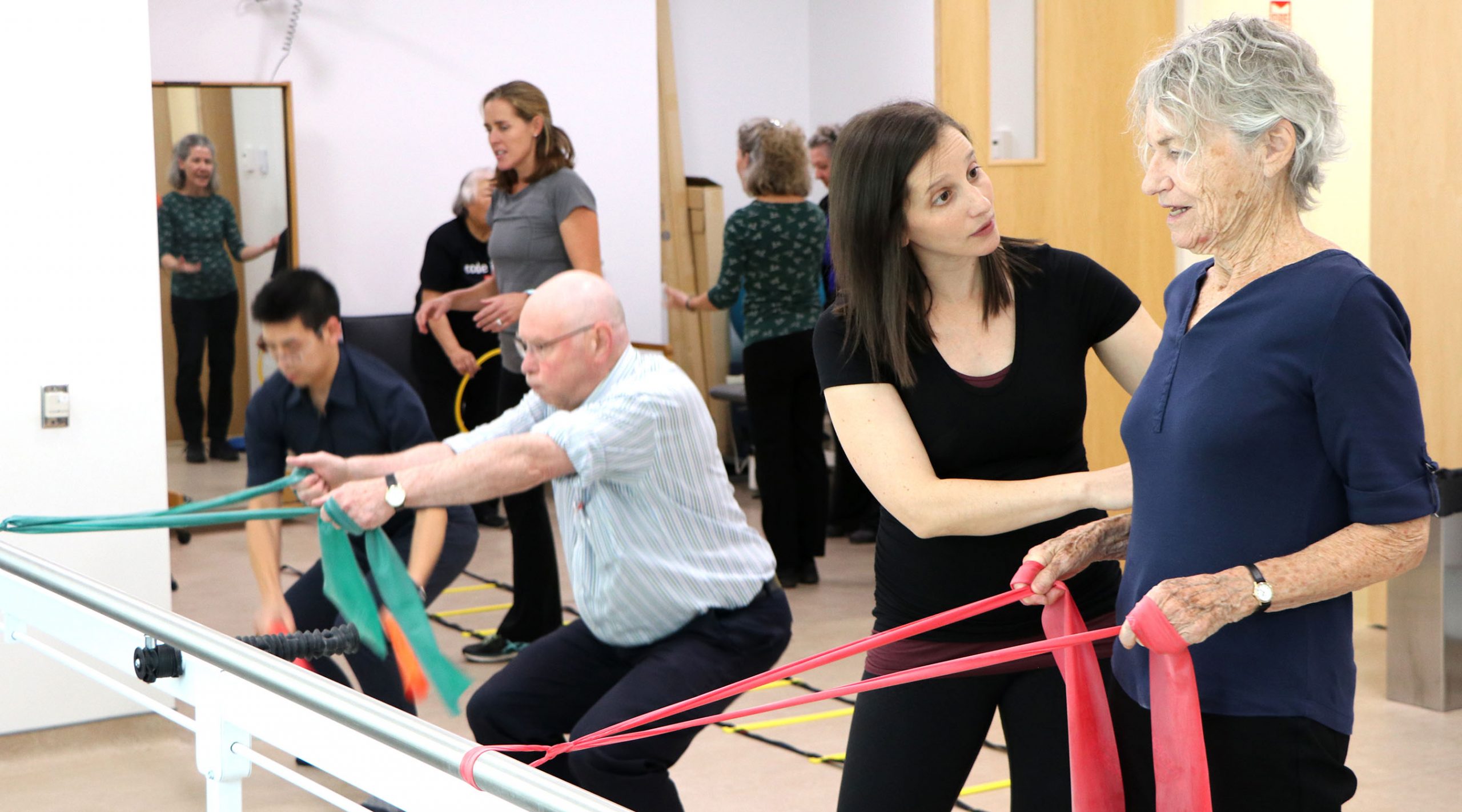
The human brain is among the most complex systems in the universe. It makes you who you are as a person, guiding everything from your thoughts and feelings to your personality and physical abilities.
When your brain is working well, you feel your best and can do anything you set your mind to. That is what makes it so important to take care of your brain health—it is the key to feeling and functioning as well as possible in all aspects of life.
Healthy behaviours support brain health
We all know that lifestyle factors and choices—including exercise, nutrition, stress, sleep, cognitive and creative activity and social connectedness—are vital to living well, for all of us. This is especially true for people living with a chronic brain condition, and for their care partners.

Dr. Silke Appel-Cresswell
In Parkinson’s disease, for example, exercise and a healthy diet are associated with slower disease progression, later onset of the disease and reduced risk of developing it. In a recent large cohort study, these healthy behaviours were associated with a 65 per cent reduction of mortality.
“We don’t have a single medication that can prevent, cure, reverse or stop Parkinson’s,” says Dr. Silke Appel-Cresswell, a neurologist with the movement disorders clinic in the Djavad Mowafaghian Centre for Brain Health, Marg Meikle Professor for Research in Parkinson’s Disease and Director of the Pacific Parkinson’s Research Centre at UBC.
In 2019, Dr. Appel-Cresswell and Dr. Jack Taunton, professor emeritus of sports medicine, launched the B.C. Brain Wellness Program to offer free, evidence-informed exercise and lifestyle classes, in-person at the UBC Vancouver campus and online across the province. The program also conducts research to expand our understanding of the brain across diseases and how wellness interventions work.
The program is popular among older adults, including healthy agers who want to prevent or lower their risk of brain disorders, people living with chronic conditions such as Parkinson’s disease, dementia, multiple sclerosis, stroke and traumatic brain injury, and their care partners—an important group that often falls through the cracks.
“We know the outcomes of the patient depend on the care partner, but often they’re so busy providing care that they neglect to look after their own health,” says Dr. Appel-Cresswell. “When they don’t advocate for themselves, they might become overwhelmed and emotional problems might boil up.”
Unique aspects of the program
The B.C. Brain Wellness Program is unique because its exercise classes cater to the individual physical function and requirements of each participant, rather than focusing on a specific medical diagnosis. Participants are matched with one of four levels, depending on how far they can walk, their balance and whether they can get up and down from the floor on their own. This tailored approach helps ensure every person can benefit from the program, regardless of their condition, and promotes a sense of inclusivity and empowerment.
“This way, the newly diagnosed don’t have the feeling of looking into the future when they’re in a class with people who have had the disease for 15 years and have substantial disabilities,” says Dr. Appel-Cresswell.
In addition to her background in athletics and a lifelong interest in nutrition and mindfulness, her patients inspired her to launch the program.
“It was clear to me from the clinic,” she says. “The people who were exercising, active cognitively and socially, and eating healthily were doing significantly better.”
Mounting evidence points to the benefits of exercise on the symptoms of Parkinson’s disease and dementia. A decade ago, donor-funded pilot studies at UBC found a biological explanation—the release of more dopamine after an intense bout of exercise in people with Parkinson’s who exercise regularly, compared to those who are more sedentary. Dopamine is a chemical in the brain that plays a role in motivating and rewarding behaviour, as well as regulating mood and movement.
This research paved the way for the B.C. Brain Wellness Program, which is fully funded by philanthropy from grateful participants and donors who know the importance of a healthy lifestyle and its connection to diseases that affect their loved ones.
Look to the future
Dr. Appel-Cresswell’s goal is to expand the B.C. Brain Wellness Program throughout the province, so more participants in rural and remote communities can attend classes both in-person and online.
Apart from geography, neurodegenerative conditions are often isolating. People may stay home because of mobility or communication issues, or fear of stigma or falling. Chronic brain conditions are often lifelong conditions, so those affected need access to an ongoing exercise and lifestyle program that maintains the benefits over time.
“A hybrid model that combines group classes with live and recorded videos is so important,” says Dr. Appel-Cresswell. “Participants remember things from the in-person class that they can use in the online classes. Also, people form bonds with each other in group classes, which are critical because studies show loneliness kills.”
Dr. Appel-Cresswell also aims to expand research conducted through the program.
“We can create a culture where people know that participating in research is going to elevate not only the quality of the program, but also the insights and understanding we have of the brain, how diseases develop and what we can do to slow them down. Research can really make a difference,” she says.
To support the B.C. Brain Wellness Program, please contact Martha Nelson (she/her) at martha.nelson@ubc.ca or make a gift online.